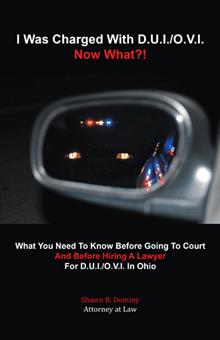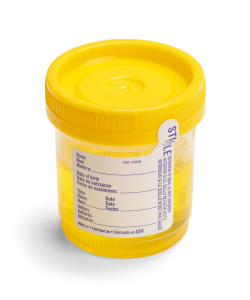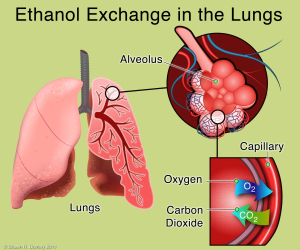 An appellate case decided earlier this month illustrates how not to attack the constitutionality of a law. In the case of State v. Topolosky, the Tenth District Court of Appeals upheld Ohio’s DUI/OVI marijuana law. Coincidentally, just before the case was published, I wrote about this topic in this blog, and I spoke about this topic at two seminars. The defendant in Topolosky did essentially the opposite of what I suggested in the blog and presentations. The defendant used an argument destined to fail…with bad timing…without an expert witness.
An appellate case decided earlier this month illustrates how not to attack the constitutionality of a law. In the case of State v. Topolosky, the Tenth District Court of Appeals upheld Ohio’s DUI/OVI marijuana law. Coincidentally, just before the case was published, I wrote about this topic in this blog, and I spoke about this topic at two seminars. The defendant in Topolosky did essentially the opposite of what I suggested in the blog and presentations. The defendant used an argument destined to fail…with bad timing…without an expert witness.
Articles Posted in DUI/OVI lawyering
Vegas: Where I Learned To Read A Poker Face
 Even someone with a poker face gives a lot of information to others through facial features. I learned this in Vegas, but not at a poker table: I learned it at the 2015 Las Vegas DUI seminar presented by the National College for DUI Defense (NCDD) and the National Association of Criminal Defense Lawyers (NACDL).
Even someone with a poker face gives a lot of information to others through facial features. I learned this in Vegas, but not at a poker table: I learned it at the 2015 Las Vegas DUI seminar presented by the National College for DUI Defense (NCDD) and the National Association of Criminal Defense Lawyers (NACDL).
Failure To Provide Evidence Impacts Ohio DUI/OVI Cases
 DUI/OVI cases are litigated within a framework of rules. Some of those rules regulate the exchange of evidence between the prosecution and the defense. That exchange of evidence is the ‘discovery’ process. The rules for discovery are found in state and federal law, and the intricacies of the rules are fleshed-out in court decisions interpreting the rules. A prosecutorial violation of the discovery rules may significantly impact a DUI/OVI case.
DUI/OVI cases are litigated within a framework of rules. Some of those rules regulate the exchange of evidence between the prosecution and the defense. That exchange of evidence is the ‘discovery’ process. The rules for discovery are found in state and federal law, and the intricacies of the rules are fleshed-out in court decisions interpreting the rules. A prosecutorial violation of the discovery rules may significantly impact a DUI/OVI case.
Who Is Protecting Our Constitution Now?
 It’s Independence Day. We’re celebrating our freedom, and we’re celebrating everything which makes the U.S.A. a great nation. One thing which makes this nation great is it’s ultimately governed by laws, not people. The framework for our laws is the Constitution, and the part of the Constitution which guarantees much of the freedom we’re celebrating today is the Bill Of Rights. The founders of this nation put their lives on the line for that freedom. Soldiers in our military protect the country and preserve our freedom from foreign oppression. But who is protecting our freedom from domestic oppression and preserving the liberties promised by the Bill Of Rights?
It’s Independence Day. We’re celebrating our freedom, and we’re celebrating everything which makes the U.S.A. a great nation. One thing which makes this nation great is it’s ultimately governed by laws, not people. The framework for our laws is the Constitution, and the part of the Constitution which guarantees much of the freedom we’re celebrating today is the Bill Of Rights. The founders of this nation put their lives on the line for that freedom. Soldiers in our military protect the country and preserve our freedom from foreign oppression. But who is protecting our freedom from domestic oppression and preserving the liberties promised by the Bill Of Rights?
Forensic Gas Chromatography For Lawyers
 Last week, I completed a short course in gas chromatography. Completing the course reminded me of what Stephen Covey used to say: “To know and not to do is really not to know.” He is so right. It’s one thing to know the law of blood and urine testing. It’s a very different thing to know the science of blood and urine testing. To know the science, you have to do the science, and lawyers typically do not have the opportunity to do the science. Now, however, lawyers get to do the science of gas chromatography in a short course presented by the American Chemical Society.
Last week, I completed a short course in gas chromatography. Completing the course reminded me of what Stephen Covey used to say: “To know and not to do is really not to know.” He is so right. It’s one thing to know the law of blood and urine testing. It’s a very different thing to know the science of blood and urine testing. To know the science, you have to do the science, and lawyers typically do not have the opportunity to do the science. Now, however, lawyers get to do the science of gas chromatography in a short course presented by the American Chemical Society.
What Is The Irony Of Urine Testing In Ohio DUI/OVI Cases?
Most states acknowledge urine testing is not an accurate way to measure blood alcohol concentration, and Ohio is one of the few states which still uses urine alcohol testing for DUI/OVI cases. Ohio law makes urine tests admissible in court so long as law enforcement agencies follow state regulations. Some of those regulations address scientific reliability, and some of those regulations address administrative issues. As a result, urine tests are often inadmissible, not because they are scientifically unreliable, but because the government did not follow its own rules.
You Don’t Want A Ride From ARIDE Officers
 If you get a ride from an ARIDE officer, it’s because you’ve been arrested for DUI/OVI. The acronym stands for Advanced Roadside Impaired Driving Enforcement, and ARIDE is a course which some police officers complete to improve at investigating and prosecuting Ohio DUI/OVI cases involving drugs. To better understand what officers are learning at ARIDE, I recently completed the program myself, and I expect it to improve my effectiveness in defending cases involving driving under the influence of drugs.
If you get a ride from an ARIDE officer, it’s because you’ve been arrested for DUI/OVI. The acronym stands for Advanced Roadside Impaired Driving Enforcement, and ARIDE is a course which some police officers complete to improve at investigating and prosecuting Ohio DUI/OVI cases involving drugs. To better understand what officers are learning at ARIDE, I recently completed the program myself, and I expect it to improve my effectiveness in defending cases involving driving under the influence of drugs.
Acid Reflux And Breath Tests In Ohio DUI/OVI Cases
Somewhere between ten percent and twenty percent of Americans have GERD: Gastro Esophageal Reflux Disease. While the advertisements by pharmaceutical companies have made GERD common knowledge, it is no so commonly known that this medical condition can inflate the result of an alcohol breath test. When the defendant in an OVI case has GERD, lawyers and judges find themselves at the intersection of law and science.
Unanimous Supreme Court Reinforces Defendant’s Right To Challenge Breath Test Results In Ohio DUI/OVI Cases
 For three decades, lawyers and judges have been misinterpreting the case of State v. Vega. In Vega, the Ohio Supreme Court held defendants in DUI/OVI cases may not attack the general reliability of breath-testing machines. Some lawyers and judges interpret Vega as if it says defendants are not permitted to make any challenge to the breath test result. This misinterpretation of the Vega decision may exist in part because most people have not actually read the decision. It’s like the telephone game where the statement made by the first person in the game is modified drastically by the time the statement is repeated by the last person in the game. A few days ago, the Ohio Supreme Court clarified the holding of Vega in a case which will hopefully end the abuse of defendants’ rights resulting from the misinterpretation of Vega.
For three decades, lawyers and judges have been misinterpreting the case of State v. Vega. In Vega, the Ohio Supreme Court held defendants in DUI/OVI cases may not attack the general reliability of breath-testing machines. Some lawyers and judges interpret Vega as if it says defendants are not permitted to make any challenge to the breath test result. This misinterpretation of the Vega decision may exist in part because most people have not actually read the decision. It’s like the telephone game where the statement made by the first person in the game is modified drastically by the time the statement is repeated by the last person in the game. A few days ago, the Ohio Supreme Court clarified the holding of Vega in a case which will hopefully end the abuse of defendants’ rights resulting from the misinterpretation of Vega.
New Book Provides Readers With Valuable Information About DUI/OVI In Ohio
 It won’t win a Pulitzer Prize, it will not be mentioned with the New York Times best sellers, and it will not be at the top of readers’ ‘wish lists’. In fact, most people may not find it very interesting. If you are charged with a DUI/OVI in Ohio, however, this book suddenly becomes a must-read. I’m talking about the new book: I Was Charged With DUI/OVI, Now What?!
It won’t win a Pulitzer Prize, it will not be mentioned with the New York Times best sellers, and it will not be at the top of readers’ ‘wish lists’. In fact, most people may not find it very interesting. If you are charged with a DUI/OVI in Ohio, however, this book suddenly becomes a must-read. I’m talking about the new book: I Was Charged With DUI/OVI, Now What?!
 Columbus OVI/DUI Attorney Blog
Columbus OVI/DUI Attorney Blog



